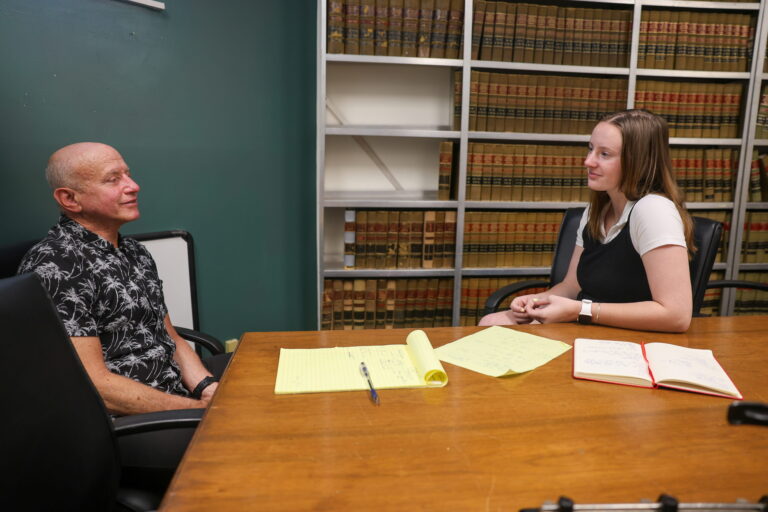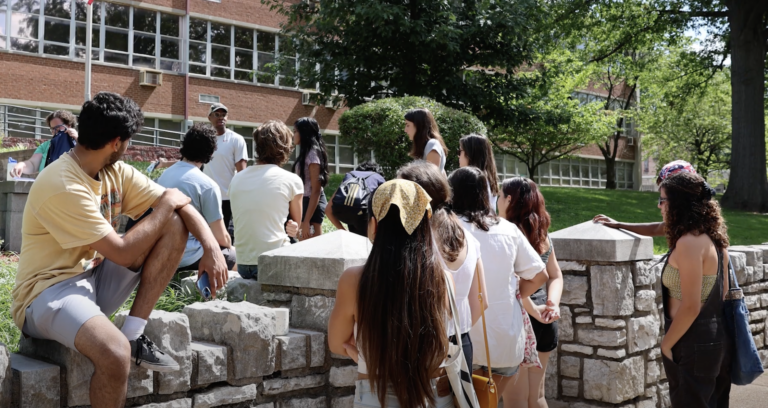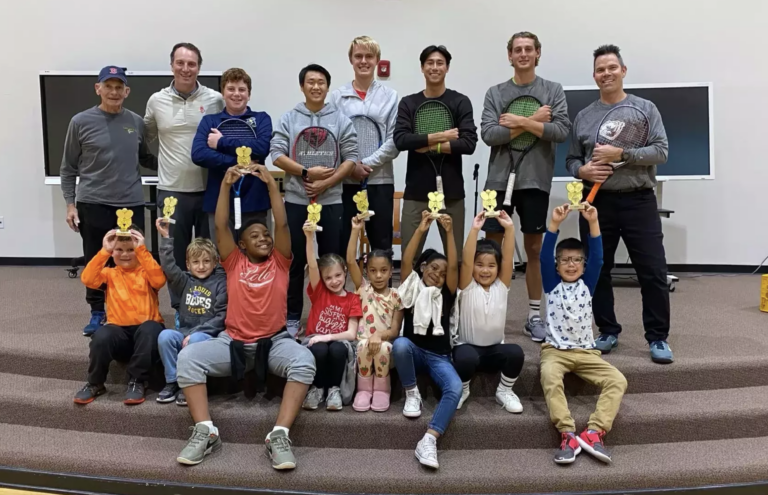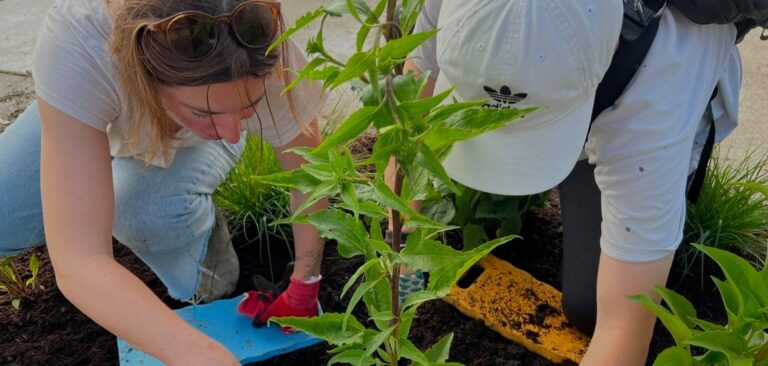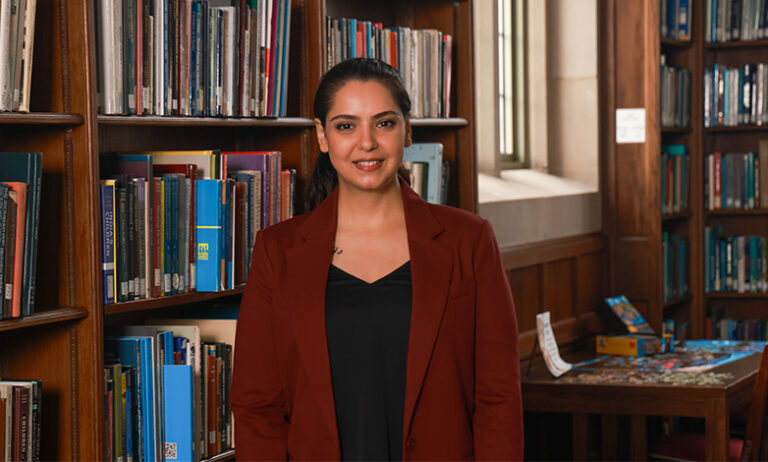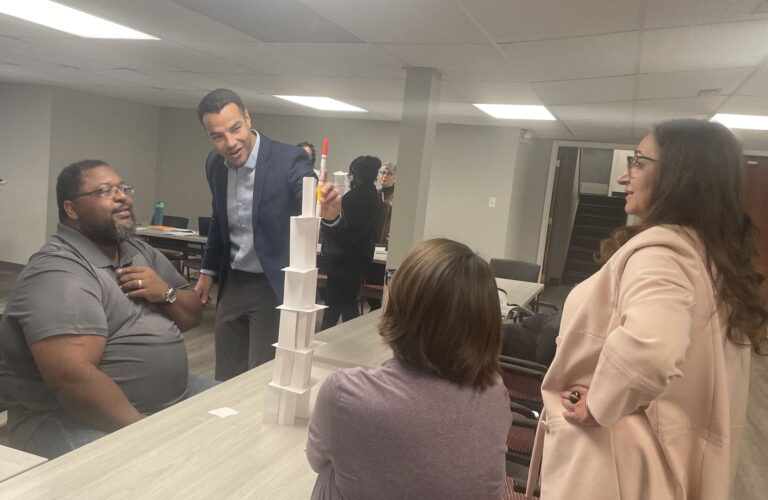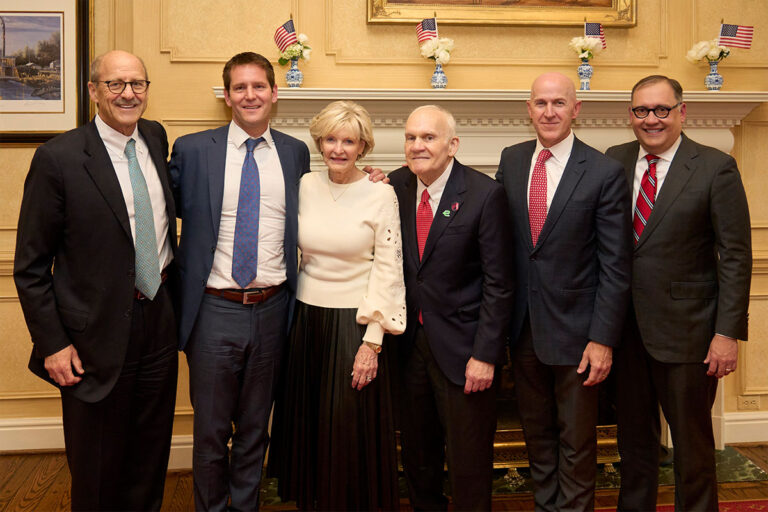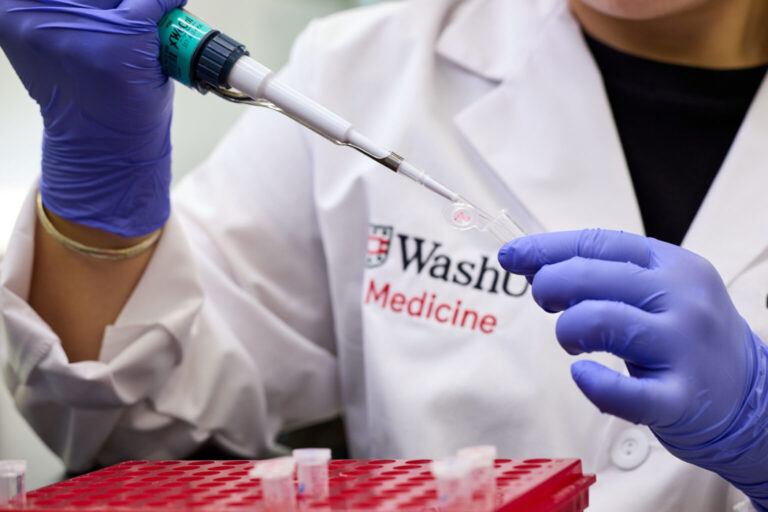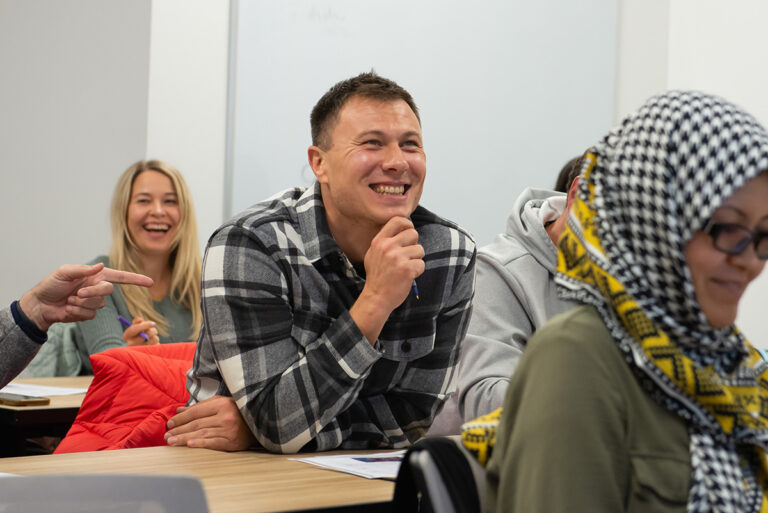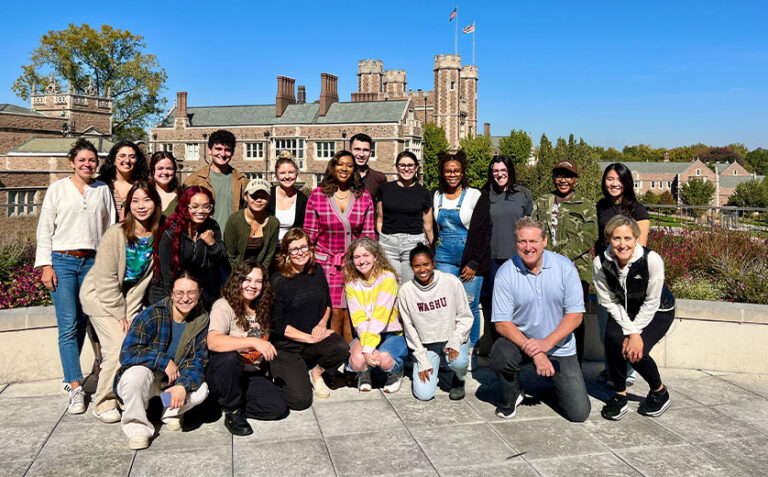‘Brilliant’ Fellows help Great Rivers deliver environmental justice
Eight floors up in the nondescript Security Building in downtown St. Louis, a small legal team has been engaged in public service work for over two decades at the Great Rivers Environmental Law Center. Last summer as part of the WashU St. Louis Fellows Program, Jordyn Ederer ‘26, a Goldman Fellow, worked out of the firm’s book-laden office on North Fourth Street and interned under the guidance of Bruce Morrison, the General Counsel of Great Rivers, and a WashU Law alumnus. Great Rivers is Missouri’s only public interest law firm focused on tackling the environmental and public health crises facing people in Missouri and Southern Illinois through legal avenues.
The St. Louis Fellows Program at Washington University in St. Louis
The St. Louis Fellows Program is a flagship initiative of the Gephardt Institute for Civic and Community Engagement which advances Washington University’s commitment to be in St. Louis and for St. Louis. This six-month competitive fellowship prepares WashU students for lifelong civic leadership through an experiential curriculum and local internships focused on advancing mission-critical work that moves the St. Louis region forward
Giving Back: WashU Men’s Tennis Continues Tradition of Helping Youth in the Community
Learning a sport typically starts at a young age. Parents often give their child a ball, a bat, a racquet, or a glove to help build their interest in athletics. Kids swing and miss or throw in the wrong direction, but they often get to hear words of encouragement from those at a practice or game to keep going. But it’s not that easy for everyone. Some children have challenges that they must overcome and do so on a daily basis. One group in particular are those children who are deaf and/or hard of hearing. Luckily some have the opportunity to attend the Central Institute for the Deaf (CID) here in St. Louis. Part of their education is learning about physical activities and sports. That is where the Washington University in St. Louis men’s tennis team has been able to make a connection and give back to the community.
Students and Partners Reflect on CityStudioSTL Fellowships
Each summer, the Sam Fox School’s Office for Socially Engaged Practice works to place students in 12-week fellowship roles with community partners through the CityStudioSTL program. The fellows and firms intentionally focus on community-driven projects in the St. Louis area, often partnering with area nonprofits to strengthen the region while providing students the opportunity to experience the city beyond WashU’s campus.
Naseh awarded grant to improve refugee health in Missouri
Mitra Naseh, an assistant professor at the Brown School, has received a three-year, $463,654 grant from the Missouri Foundation for Health to study and improve the health of refugees in Missouri. Naseh’s project, titled “Structural Barriers and Health Outcomes of New Missourians,” will focus on identifying and addressing the challenges refugees face when seeking initial assistance. The goal is to develop and test community-led solutions to improve health outcomes for newly resettled refugees across the state.
Creating time, space for educators to deepen leadership bench on teams
Dr. Cryslynn Billingsley, Jennings Senior High and College Prep Academy Principal, is among more than 22 educators from the Jennings School District participating in The Art of Coaching Book Club, a guided set of professional learning sessions facilitated by Washington University’s Institute for School Partnership (ISP) and the Center for Education Leadership at the St. Louis Community Foundation. Based on Elena Aguilar’s book, “The Art of Coaching Teams: Building Resilient Communities That Transform Schools,” the sessions provide a safe place for shared learning on the importance of building trust, listening, and asking effective questions.
Gratitude inspires generous support for WashU Medicine’s neurosurgery department
Andrew Taylor, an emeritus trustee of Washington University in St. Louis, and his wife, Barbara, have made a $50 million gift to WashU Medicine’s neurosurgery department to enhance groundbreaking research, innovative patient care and the training of the next generation of neurosurgery leaders. In recognition of the Taylors’ generosity, the department has been named the Taylor Family Department of Neurosurgery. “This gift marks a new era in the history of innovative science and compassionate healing at WashU Medicine,” said Chancellor Andrew D. Martin. “Andrew and Barbara’s generosity is further strengthening the department’s research infrastructure and helping WashU Medicine deliver world-class, life-changing care right here in St. Louis, while also providing life-saving innovations to the world. Their investment in new discoveries and treatments will give many more families reasons to feel grateful for decades to come.”
WashU Medicine reaches all-time high in NIH funding
In a testament to the quality and national competitiveness of biomedical research at Washington University School of Medicine in St. Louis, the school secured $683 million in research funding from the National Institutes of Health (NIH) in federal fiscal year 2024 – a record high for WashU Medicine and an affirmation of its leadership in shaping the future of medicine. WashU Medicine’s NIH-funding success acts as a magnet for the brightest minds in medicine, drawing top-tier scientists, physicians and students from around the world to work and train at WashU Medicine. This influx of talent fosters collaborations with biotech and pharmaceutical companies, driving further medical advancements and spurring local and regional economic growth.
Starting anew: WashU’s Empower program helps educated refugees tackle language, career hurdles
In May 2024, the School of Continuing & Professional Studies (CAPS) at Washington University in St. Louis launched Empower, the first no-cost program of its kind designed specifically for educated refugees. The 26-week program gives students the next-level English and professional skills they need to find jobs that match their talents and training. It also provides career coaching and an opportunity to earn a CAPS certificate in health care, data analytics, project management and other high-demand fields at no cost.
From Classroom to City Hall: Brown School students gain hands-on policy experience
Students from Washington University’s Brown School recently took their classroom lessons to the frontlines of local policy, offering public testimony on a bill aimed at expanding non-traditional housing options in the City of St. Louis. Their participation was part of the “Domestic Social and Economic Development Policy” course, designed to give students real-world experience in legislative advocacy and policymaking.
